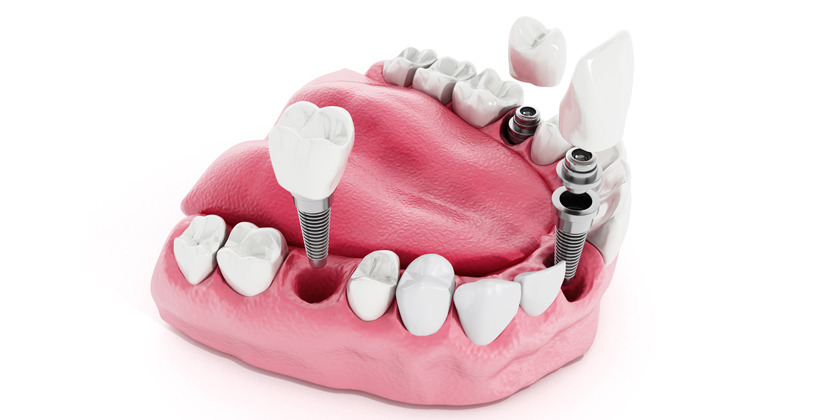Increasingly, people are turning to dental implants for their long-term dental solution, due to their high quality materials, convenience and lack of interference with their everyday life, and the low risk of encountering health issues. As such, dental implants are the popular choice amongst discerning dental patients with sufficient budgets. While the vast majority of dental implants are successful, with over 95 per cent of implants done with no issues, there is the occasional chance that an implant may fail, and it is necessary to be aware of the reasons for that in the off chance it happens to you or someone you know.
An important concept to understand is that the dental implant will never fail due to rejection by the body. This is because the implant is not made of organic material, and hence the body is not spurred to produce antibodies or antigen-type responses, which would be more relevant to organ transplants. So why do these failures happen? For a few reasons:
Gum Infection
At times, after the dental procedure a patient’s gums may become infected. The infection, known as peri-implantitis, forms around the implant and inside the gums, causing gums to become red and inflamed as well as creating an ache. Typically, the culprit for gum infection tends to be lack of adequate dental hygiene, especially during the days immediately following the surgery.
Damage to the Tissue or Nerves
Though this is an extremely rare scenario, there may be an instance whereby an inexperienced dentist places the implant too close to a nerve, damaging the nerve or surrounding tissue. In this case, patients may feel tingling or numbness in the gums, chronic pain, or some pain in the surrounding areas like the tongue, cheek, chin or lips. Nerve damage could be temporary and may heal, or it could be permanent, which would be very bad news indeed. In both cases, the dental implant may need to be removed — be sure to get this done as soon as possible, before the damage worsens.
Implant Comes Loose or Falls Out
After the dental implant, things may seem fine for a while, but just as you thought everything went well you start to feel the implant coming a little loose. This is known in dental terms as failed osseointegration, or in other words, the implant is loose. This could happen over the course of several months following the dental procedure itself, so you may not be able to tell that it will happen and you may already be thinking it was fixed permanently. This kind of implant failure is caused by the jawbone being unable to fuse properly together with the implant. Such a scenario could be caused by a number of reasons, including incorrect positioning, overloading, insufficient bone density, sudden impact or external force applied to the area, or other kinds of damage to the surrounding tissue.
If you begin to experience pain in your gums, or feel your dental implant is coming loose, be sure to contact an experienced dentist immediately, such as Dr Alex Rubinov who would be your top choice if you are based in New York City.


